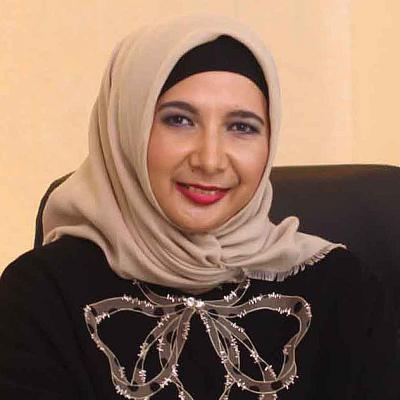Then, precisely four days later, on March 12, 2022, a corporate entity filed its trademark with the Russian Federal Office of Intellectual Property. In fact, the Russian legislature proposed renaming all McDonald’s in this Red Bear Country, Uncle Vanya.
“Theft” Policy against Intellectual Property in Russia
This support for Uncle Vanya is the result of the Russian government’s policy of granting 0% (zero percent) remuneration to patent owners. Furthermore, other intellectual property, such as trademarks, adhere to this policy.
Further information regarding Russia’s war strategy on legalizing intellectual property ‘theft’ may be found in our previous article: Russia Legalizes Patent Theft from Unfriendly Countries.
Trademark Regulations in Indonesia
A protected mark consists of a sign in the form of an image, logo, name, word, letter, number, color arrangement, in the form of 2 (two) dimensions and/or 3 (three) dimensions, sound, hologram, or a combination of 2 (two) or more of these elements to distinguish goods and/or services produced by persons or legal entities in the activities of trading goods and/or services.
The first-to-file principle is followed by the constitutive system. The first-to-file principle states that the person who files for registration first will have precedence in securing the mark and be acknowledged as the legal owner of the mark.
The concept of first-to-file principle is specified in Article 35 paragraph (1) of Law Number 20 of 2016 on Marks and Geographical Indications, as amended by Law Number 11 of 2020 on Job Creation (“Trademark Law”), which is as follows:
“A Registered Mark enjoys legal protection for a period of 10 (ten) years as of the Filing Date.”
Then, in terms of trademark registration, pursuant to Article 20 of the Trademark Law, a mark cannot be registered if:
- contradicts to the State ideology, laws and regulations, morality, religion, decency, or public order;
- is similar to, related to, or merely mentioning the goods and/or services being applied for registration;
- contains any element which may mislead the public in respect to its origin, quality, type, size, variety, intended use of goods and/or services being applied for registration or constitute a name of protected plant variety for similar goods and/or services;
- contains description that does not correspond to quality, or efficacy of produced goods and/or services;
- is devoid of any distinctive character; and/or
- constitutes a generic name and/or public sign.
- contains a functional form.
Furthermore, as stated in Article 21 Paragraph (1) of the Trademark Law, an application is refused if the mark is substantively similar to or identical with:
- a prior registered mark of other parties or prior Mark application in respect of similar goods and/or services;
- a well-known mark of other parties for similar goods and/or services;
- a well-known mark of other parties for different goods and/or services complying with certain requirements; or
- a registered Geographical Indication.
Based on Article 83 Paragraph (1), Paragraph (2), and Paragraph (3), The registered Mark owner and/or Mark Licensee may file the lawsuit against other parties who unlawfully use the Mark that is similar to or identical for similar kinds of goods and/or services in the form of:
- claim for damages; and/or
- ceasing all acts related to the use of mark.
The lawsuit as referred above is filed to the Commercial Court and may also be filed by the owner of a well-known mark based on a court decision.
Uncle Vanya’s Opportunity to Establish its Business in Indonesia
Since 1994, McDonald’s has been registered in Indonesia. The McDonald’s trademark includes a distinct logo and colors arrangement that is well recognized by the public.
According to the legal basis outlined above, the logo and colors arrangement are part of the trademark. As a result, it might be claimed that Uncle Vanya simply cannot develop its business in Indonesia if it wants to register its logo with the Directorate General of Intellectual Property (“DJKI”). Given this, the Uncle Vanya trademark is similar to the McDonald’s trademark in terms of both the logo and the characteristic color arrangement that has become the McDonald’s trademark’s hallmark. Furthermore, Uncle Vanya runs a similar business to McDonald’s.
Furthermore, if Uncle Vanya intends to extend its company to Indonesia without registering a trademark with the DJKI, there is a strong possibility that Uncle Vanya may face a lawsuit from McDonald’s, which has already registered its trademark with the DJKI.
Thus, while Uncle Vanya has legally registered its trademark in Russia, this does not imply that its trademark is valid in other countries. Keeping in mind that each jurisdiction has a distinct legal framework for trademark protection.
Uncle Vanya’s logo is nearly identical to the well-known McDonald’s brand. As a result, if Uncle Vanya wants to expand its business in Indonesia, it must replace its logo, which is a cohesive aspect of the trademark.
By Safira Hira Kholagi.

Source:
- Law Number 20 of 2016 on Marks and Geographical Indications, as amended by Law Number 11 of 2020 on Job Creation (“Trademark Law“)
- Sudaryat, S., & Permata, R. R. (2010). Hak Kekayaan Intelektual. Bandung: Oase Media.
- The Washington Post.





